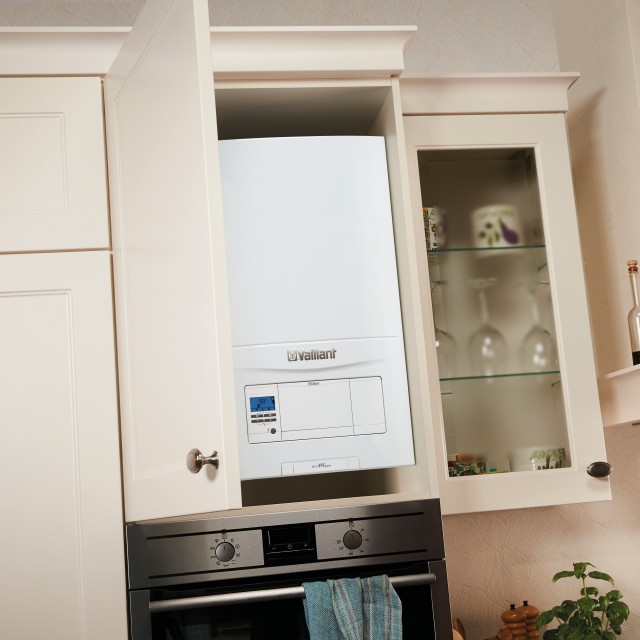Boiler kettling is a common cause of a noisy boiler. Water within the system is typically heated to around 70 °C inside the boiler circuit before being pumped throughout a home. However, the flow of water can be slowed down, causing the water to heat too quickly and reach boiling point (100 °C).
When this happens, steam is generated and air becomes trapped inside the system, giving off a whistling sound; hence ‘kettling’. Boiler kettling can also create banging noises.
There are several reasons why water might be pumped around at a slower rate:
Limescale build up
It is common for homes in hard water areas to experience limescale build up. Over time the mains water causes limescale to build up in pipes and block the flow of water. By slowing the flow of water as it passes over the heat exchanger, the system heats the water to boiling point and the steam that is given off increases pressure inside the system.
If you live in a hard water area, your system will use the same water, and it’s possible that this can cause limescale inside the pipework and heat exchanger. That will reduce the effective cross-section of the pipes and heat exchanger channels and slow the flow down, as well as making it more turbulent.
Faulty thermostat
A broken thermostat can give an incorrect reading to the boiler and cause it to heat water to dangerous levels. This is sometimes the case in older boilers, where faults can crop up as the boiler reaches the end of its lifespan. New appliances have many more safety devices that prevent this from occurring in the event of a faulty thermostat.
Damaged pump
The boiler pump is essential for pushing water round the system at the right speed to heat water to a suitable temperature. If the pump becomes faulty, it is likely that water will be pushed at a slower rate and overheat.



